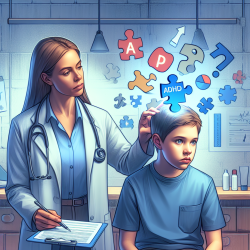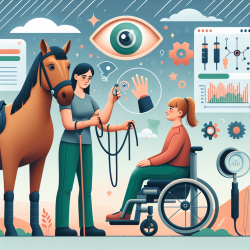Understanding the Rise in Autism Diagnoses: A Guide for Practitioners
Autism Spectrum Disorder (ASD) has seen a significant increase in diagnosis rates over the past few decades. This trend has sparked discussions and research into the factors contributing to this rise. A recent study titled "Diagnosis despite clinical ambiguity: physicians’ perspectives on the rise in Autism Spectrum disorder incidence" provides valuable insights into the perceptions of healthcare professionals regarding ASD diagnoses.
Key Findings from the Study
The study surveyed 191 specialists in child neurology and development, and 200 child psychiatrists in Israel, focusing on their perspectives on the accuracy and rate of ASD diagnosis compared to other conditions like cerebral palsy (CP) and Attention Deficit Hyperactivity Disorder (ADHD). The results revealed that:
- 67.2% of physicians reported a moderate/significant increase in ASD diagnoses, a rate higher than that for CP and mental illnesses, but similar to ADHD.
- 52.8% believed that more than 10% of ASD diagnoses were given despite inconclusive evaluations.
- Many physicians attributed over-diagnosis to factors such as heightened awareness, public de-stigmatization, and the availability of ASD-specific services.
Implications for Practitioners
For practitioners, these findings highlight the importance of ensuring accurate and thorough evaluations when diagnosing ASD. Here are some recommendations based on the study's outcomes:
- Focus on Functionality: Consider the child's functional level and specific developmental deficits rather than relying solely on diagnostic labels. This approach can help in providing appropriate interventions and services.
- Temporary Diagnoses for Young Children: For children under three, consider providing a temporary ASD diagnosis with reevaluation at age three. This allows for early intervention while acknowledging that some symptoms may resolve over time.
- Strict Diagnostic Criteria: Implement stricter criteria for ASD diagnosis to reduce the risk of over-diagnosis. Only highly knowledgeable and experienced professionals should be authorized to diagnose ASD.
Encouraging Further Research
The study underscores the need for ongoing research to refine diagnostic criteria and improve the accuracy of ASD evaluations. Practitioners are encouraged to engage in continuous education and peer learning to stay updated with the latest developments in the field.
To read the original research paper, please follow this link: Diagnosis despite clinical ambiguity: physicians’ perspectives on the rise in Autism Spectrum disorder incidence.










